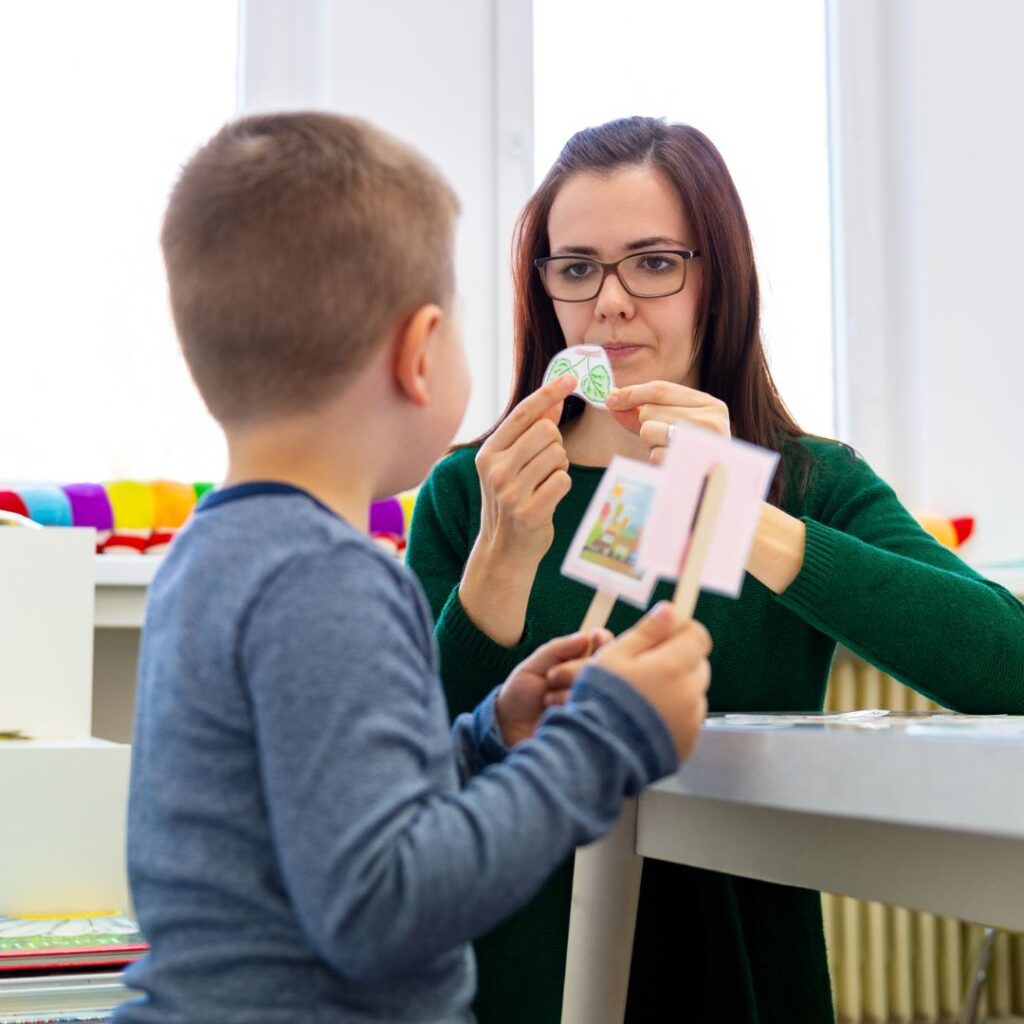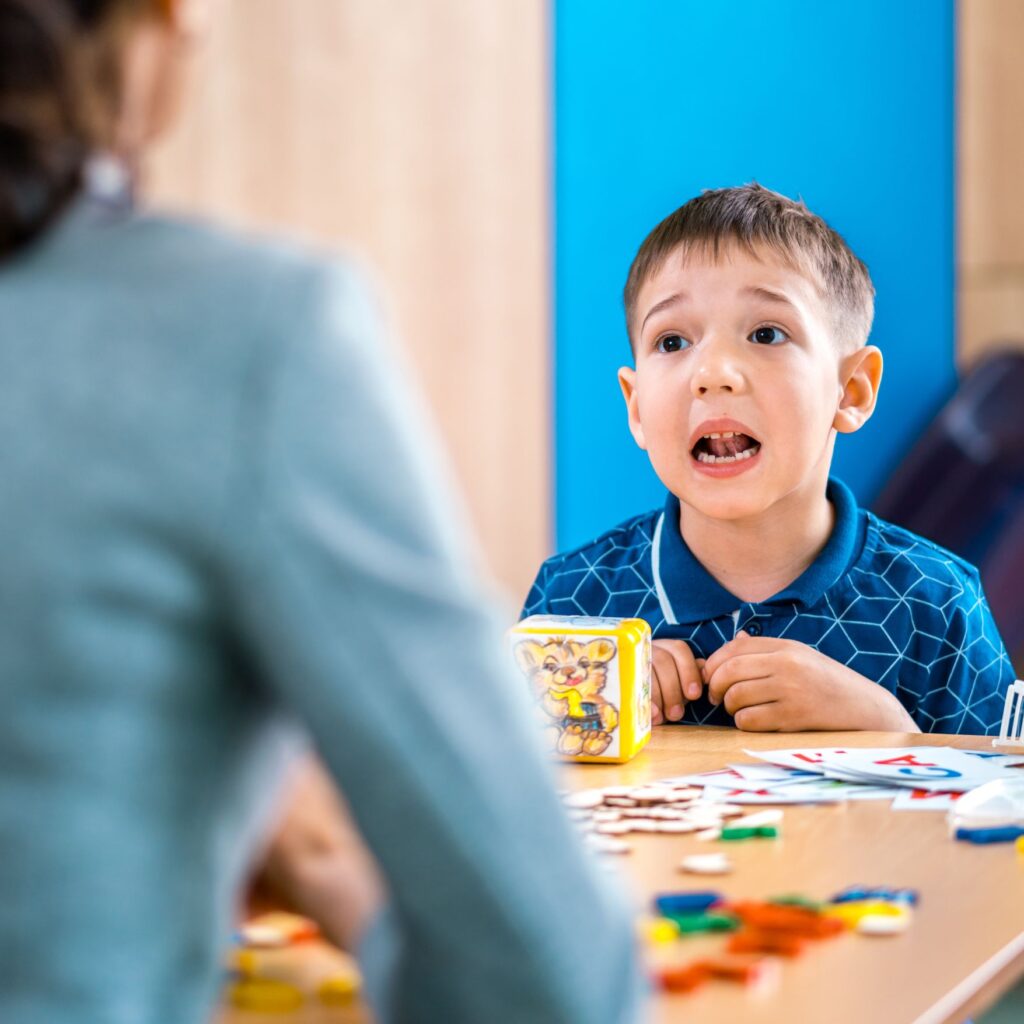Top 10 Questions Parents Ask About Paediatric Speech Therapy
Speech therapy is a common concern among thoughtful, attentive parents we meet at Neuronurture Kids, who are often worried about their child’s communication development. One of the most frequent questions we hear is: “Is my child’s speech delay something to worry about?” If you’re grappling with this question, know that you are not alone and that your concern is valid. In this blog, we explore the top 10 most common questions parents ask about paediatric speech therapy, along with informed, science-backed insights. Our goal is to guide you through the facts with compassion, and help you feel confident about when and how to seek appropriate support. 1. What is Paediatric Speech Therapy? Paediatric speech therapy is a clinical intervention designed to assess, diagnose, and treat communication disorders in children. Conducted by Speech-Language Pathologists (SLPs), therapy targets: Articulation and speech intelligibility Receptive and expressive language development Pragmatic (social) communication skills Oro-motor and feeding difficulties (especially in children with neurological or genetic disorders) At Neuronurture Kids, our approach is evidence-based and developmentally appropriate, ensuring therapy aligns with both clinical goals and your child’s unique learning style. 2. When Should I Be Concerned About My Child’s Speech? While developmental timelines vary, there are key red flags that should not be overlooked. These include: Absence of babbling by 12 months No spoken words by 16–18 months Vocabulary fewer than 50 words by age 2 Struggles to form short sentences by age 3 Difficulty understanding or following simple commands If your child is missing multiple milestones, it may reflect a delay in language acquisition, phonological processing, or auditory-verbal integration — all of which benefit from early assessment. What Causes Speech and Language Delays? Speech and language delays can arise from a variety of factors, including: Developmental delay – Often linked to poor stimulation at home or excessive screen time, which can limit meaningful interaction and language exposure during critical early years. Autism Spectrum Disorder (ASD) – Children with ASD may show delays or differences in social communication, joint attention, and language use. Genetic syndromes – Conditions like Down syndrome, Fragile X, or other inherited disorders may affect language acquisition. Hearing impairments – Even mild or undetected hearing loss can interfere with the ability to process sounds and learn words. Oral-motor dysfunction – Difficulties in coordinating the muscles needed for speech and feeding can delay intelligible communication. Global developmental delay or intellectual disability – Broader cognitive challenges can impact speech, language, and learning milestones. Environmental deprivation – Limited access to responsive communication, books, or caregiver interaction may contribute to delays. A comprehensive evaluation by a qualified Speech-Language Pathologist (SLP) or developmental pediatrician is essential to identify the underlying cause and guide intervention. 4. What Happens During a Speech Therapy Evaluation? The initial evaluation is often play-based, child-friendly, and diagnostic in nature. It may include: Structured and standardized language assessments Observation of pragmatic and expressive behaviors Oro-motor examination for feeding or articulation issues Parent interviews and developmental history review Following this, an individualized intervention plan is developed — tailored to your child’s abilities, challenges, and long-term developmental trajectory. 5. Is Speech Therapy Only for Talking? No. While articulation is one component, speech therapy addresses broader domains such as: Receptive language (comprehension of spoken language) Expressive language (use of words, phrases, and grammar) Fluency and voice modulation Social communication skills Feeding and swallowing (dysphagia) therapy, especially in infants or children with neuromotor conditions Effective therapy strengthens the foundation for academic learning, peer interaction, and emotional regulation. 6. How Long Does Speech Therapy Take? Therapy timelines vary based on: Chronological and developmental age Nature and severity of the disorder (e.g., phonological disorder vs. specific language impairment) Frequency and consistency of sessions Degree of parental involvement and practice at home Some children progress in a few months, while others may benefit from longitudinal therapy — particularly those with neurodevelopmental disorders. 7. Can Parents Help at Home? Absolutely — in fact, parent-led reinforcement is critical to therapeutic success. Your therapist will guide you on how to: Use language-rich routines like reading and narrating Practice specific speech sound targets Model turn-taking, joint attention, and vocabulary expansion Create a language-friendly environment free from excessive screen exposure Research consistently shows that family-centered intervention models produce more robust and sustained outcomes. 8. Is Online Speech Therapy Effective? Yes and in fact, for toddlers, online speech therapy can be a perfect fit. Toddlers are naturally visual learners, which makes virtual sessions uniquely engaging when tailored correctly. Therapists use colorful visuals, music, puppets, and screen-shared games to capture attention and teach key skills. This visual, interactive format mirrors how young children best absorb information. Another huge advantage? Parental participation. In virtual therapy, caregivers are present and active which means: You’re learning strategies firsthand from the therapist You can continue therapy at home using the same prompts, cues, and techniques Progress becomes part of your everyday routines — not just the session time When sessions are personalized, consistent, and fun, online speech therapy can be just as effective if not more so for toddlers who thrive in familiar home environments. At NeuroNurture Kids, our online sessions are crafted with your child’s age, attention span, and interests in mind ensuring therapy is meaningful, developmentally appropriate, and truly engaging. 9. What Should I Look for in a Speech Therapist? A qualified speech-language pathologist should ideally have: Certification from RCI (Rehabilitation Council of India) or ISHA Expertise in paediatric disorders A child-friendly demeanor and ability to engage meaningfully Clear communication with parents and caregivers A flexible, personalized treatment approach At Neuronurture Kids, our SLPs work in collaboration with developmental pediatricians, psychologists, and occupational therapists for multidisciplinary support. 10. Will My Child Outgrow Their Speech Delay? Some children with late language emergence catch up by age 3, but others may not particularly if the delay is associated with underlying conditions like developmental language disorder (DLD) or ASD. Delays left unaddressed can affect reading,








